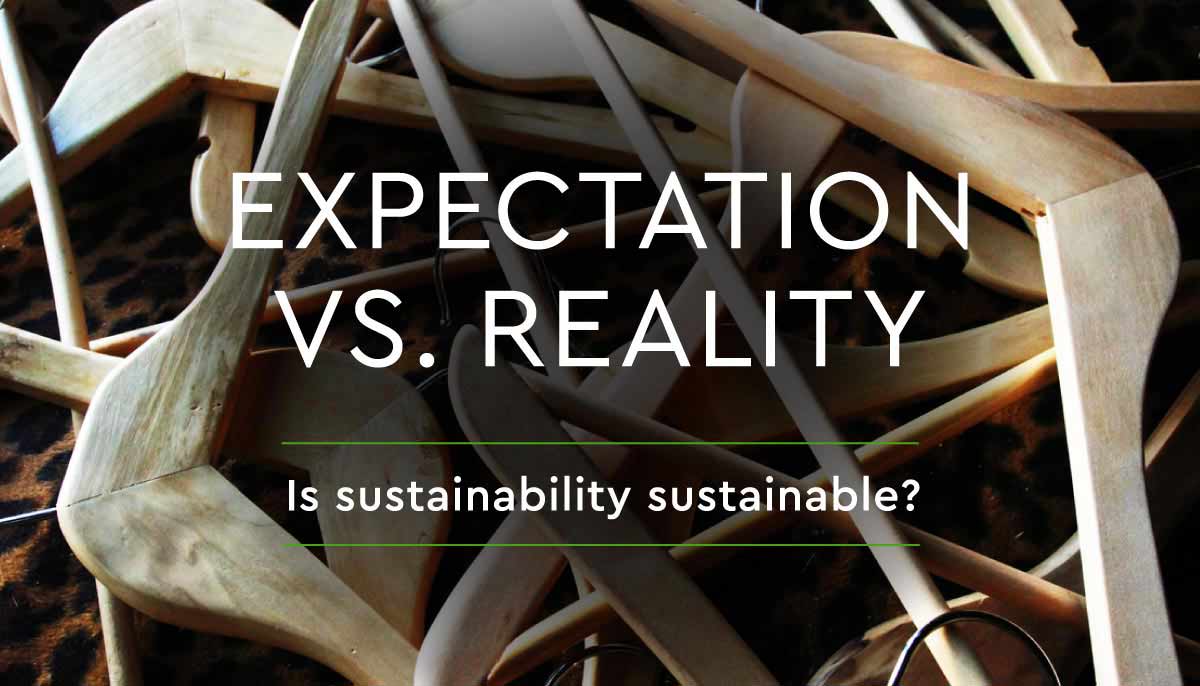
Cost, Convenience, or Conscience: What Brand Behaviors will Consumers Reward in 2022?
Much like 2020, last year was also a testing time for retailers and brands. But unlike its predecessor, 2021 had the potential for brands to cement the investments and changes made in the previous 12 months, when it comes to driving consumer confidence and maintaining loyalty.
To kick-start 2022, we wanted to take a “pulse check” of the expectations of today’s consumers to help guide brands to achieve customer satisfaction, while assessing what more still needs to be done. Over the past few years, PFS has continually tracked how consumer behaviors and desires have evolved, allowing us to compare the changes and support retailers and brands in making their next move.
In December 2021, we commissioned Arlington Research, to interview a nationally representative sample of 4,000 consumers across the US and the UK, to find out what’s important on their shopping journey and what more they want from the retailers they shop with. Let’s explore some of the key insights and impacts.
Balancing cost and conscience
In 2021, cost versus conscience continued to be an area that both consumers and brands struggled to balance. Our research found that the higher cost of sustainable products is still holding consumers back from making more eco-friendly purchases, with 34% agreeing (compared to 35% in early 2021, reinforcing that data point). A quarter of respondents (26%) also found it difficult to understand which brands actively support sustainable initiatives. This is reflected by 17% of consumers not knowing if the brands they shop with use recycled/recyclable packaging or offer a sustainable packaging option.
These findings suggest that even if brands are putting more effort and investment into becoming more sustainable or have specific initiatives in place, many consumers remain unaware of these credentials.
The desire to get the best price above all else was also highlighted by 63% of shoppers agreeing that buying a sustainable product is important, but so too is getting the best price, which may be found at online marketplaces or retail giants, such as Amazon. This feeling remains largely unchanged from when we asked the same question earlier in 2021 (67% of respondents agreed).
And where there is a cost consideration also comes convenience. Convenience is important for eight-in-ten consumers (80%) when shopping for leisure or non-essential items. For US respondents, 50% said it was very important.
Maintaining loyalty amid a culture of convenience
So what impact is this desire to prioritize cost and convenience having on brand loyalty? Figures from the UK suggest that shoppers are more driven by cost than brand loyalty (31%), marginally lower than previous research (35%), but still a significant finding. And where customers are loyal to a brand, it doesn’t necessarily mean that they will buy direct from their website or store, with 52% of consumers in the US and UK saying they don’t mind which website they purchase their trusted brands from.
Interestingly, when brand connections are made, it seems that they are stronger online (38%) than offline/in-store (23%). But one-in-five (20%) consumers admit to not feeling any emotional connection to a brand at all. This suggests a shift in how consumers evaluate and form connections with brands, perhaps accelerated by the pandemic and increased reliance on online shopping.
What does convenience and loyalty look like in 2022?
When it comes to the ideal delivery experience, free delivery/shipping is the ultimate preference according to 66% of shoppers. Sustainable packaging, delivery and returns options at checkout also form part of the ideal experience for 35% of consumers – rising to 38% in the UK.
This suggests that the will to shop sustainably is there if offered by the retailer. It also brings in the role of choice and convenience when it comes to delivery and returns. Over half (54%) of consumers prefer to have multiple options to return a product, with 27% strongly agreeing with this statement. This is good news for retailers and brands that have invested in omnichannel operations to support consumer expectations for choice, following the 2020 peak period (between Thanksgiving and Cyber Friday). Our previous research[1] suggested that in 2021, retailers were planning to invest more into curbside pick-up (30%) and growing their ‘buy online pick-up in-store’ (BOPIS) capabilities (24%).
If retailers get this investment wrong, however, it can be a real turn-off for consumers – with two-thirds (67%) of shoppers admitting that they are put off a brand entirely if the returns process is too difficult. This puts nurtured customer loyalty and advocacy at risk.
Despite the desire for more convenience and a better returns process, this could be to the detriment of sustainable efforts made by brands and those individuals who are trying to shop more “consciously”. 44% of consumers admit that they have never considered the impact of returns on the environment, and free returns are also encouraging over-purchasing according to 38% of respondents (a figure which remains unchanged from June 2021).
Customer service and a seamless shopping experience are crucial
With so many of us missing the personal touch of shopping in-store over the past few years, elevated levels of service are even more important in maintaining loyalty and brand reputation. In fact, almost a quarter of US consumers (24%) have made the decision to purchase multiple items from the same retailer in the past 12 months due to good customer service.
The importance of this is also highlighted by 42% of shoppers in the US and UK who state they would stop shopping with a retailer or brand for leisure or non-essential items all together, if they don’t provide good customer service.
Our findings also point to consumers craving choice and a seamless experience – however, and wherever they shop. The good news is that over half of consumers (54%) agreed that retailers are getting better at creating a seamless look and feel across online and offline channels, which all adds to driving brand loyalty and reputation among shoppers.
Retail priorities for 2022
Our research suggests that in 2022 consumers are most likely to purchase leisure or non-essential items online (56%), most likely from a website that sells assorted brands, such as marketplaces (19%), reaffirming that convenience and choice will remain a key factor in deciding where to shop in the future. This is backed up by two-thirds (66%) of shoppers who state that convenience is the most important reason why they are more likely to make a purchase online, closely followed by better prices (59%) and more choice of products (58%).
But brick-and-mortar stores will remain an important part of the shopping process, with a quarter (27%) of consumers most likely to make a purchase in-store in 2022 – rising to 31% in the US. The ability to browse (54%) and the shopping/brand experience (47%) are cited as the top reasons.
Whilst the pandemic still has the potential to affect shopping habits and consumer needs in 2022, retailers and brands are in a much stronger position to adapt and respond, than they were this time two years ago. Swift actions by retailers to keep up overnight have translated into agile ways of working and servicing customers, and a focus on enhancing the omnichannel approach to maintain loyalty and keep customers happy.
Research methodology
4,000 quantitative online interviews were conducted with adults aged 18+ across the US (2,000 interviews) and the UK (2,000 interviews). Nationally representative quotas were achieved (+/-2%) on gender, age and region in each country surveyed. The interviews were conducted by independent market research agency, Arlington Research to ESOMAR standards.
Contact us today to discover how PFS can optimize your order fulfillment processes, enhance your customer service, help avert fraud and implement payment processes, and more:
Contact Us | PFS (pfscommerce.com)
Additional research referenced in this article can be found in our latest whitepapers:
- EXPECTATION VS. REALITY – Is sustainability sustainable?
- OVERCOMING THE PHYSICAL DISCONNECT – How retailers can maintain consumer loyalty in an omnichannel world
- DIGITAL TAKEOVER – Post-Peak 2020
Alternatively, to stay up to date on the latest consumer insights from PFS why not join our mailing list to have these delivered straight to your inbox!


